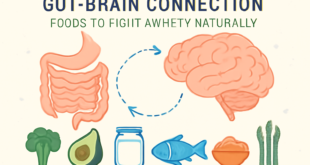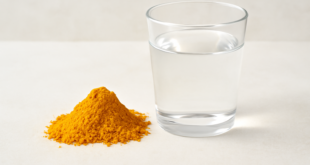
Understanding PCOS and Its Effect on Diet
PCOS, or Polycystic Ovary Syndrome, is a hormonal condition which may result in irregular periods, acne breakouts, excess hair growth and infertility. Insulin resistance often comes with PCOS; diet can have direct bearing on how effectively insulin is metabolised within your body as a response mechanism to its presence and can directly impact both blood sugar levels and hormone balance.
What Does a Diet for PCOS Include? A diet suitable for women living with PCOS includes foods rich in nutrients and anti-inflammatories as well as foods low-glycemic index scores to promote metabolism, regulate insulin, and ease symptoms.
1.Lean Proteins This includes chicken, turkey, tofu, fish, legumes and eggs as proteins help you feel full and prevent sugar crashes while providing essential muscle repair and hormone support.
2.Complex Carbohydrates
To get more complex carbs into your diet, opt for whole grains like oatmeal, quinoa, brown rice or whole wheat which release sugar slowly into your bloodstream avoiding sudden spikes of insulin production.
3.Healthy Fats
To reap maximum PCOS health benefits from fat consumption, opt for avocados, olive oil, nuts and seeds or salmon-containing products as sources of heart-healthy and anti-inflammatory fats that will benefit PCOS symptoms.
4.Fiber-Rich Foods
Fruits, vegetables and legumes can help manage weight by decreasing insulin resistance while the high fiber content slows digestion to help you feel satisfied for longer.
5.Anti-Inflammatory Spices Turmeric, cinnamon and ginger all provide natural ways of fighting inflammation; add them to teas, meals or smoothies to optimize their therapeutic benefits and reap maximum effectiveness from them.
Foods to Limit or Avoid for PCOS
While certain foods provide essential nutrition, others can worsen PCOS symptoms and need to be identified and avoided in order to control symptoms effectively. Therefore it’s vital to identify potential triggers so as to decrease any worsening of symptoms associated with PCOS.
1.Refined Carbohydrates
White bread, sugary cereals and pastries contain refined carbs which quickly spike insulin levels. This causes resistance to insulin to worsen rapidly while encouraging fat storage around the abdomen.
2.Sugary Beverages
Sodas, sweetened coffee drinks and fruit juice are full of empty calories with little nutritional benefit that cause fast blood sugar spikes.
3.Processed Meats and Fried Foods
Sausages, bacon and other processed meats can increase inflammation. Furthermore, their unhealthy fats and salt content leads to water retention and bloat in addition to increased inflammation.
4.Dairy and Gluten (In Some Cases) Its Some women with PCOS report finding relief by cutting back on dairy and gluten intake; however, research on this matter remains preliminary; for optimum results seek medical guidance to implement an elimination diet under medical guidance if there is evidence of intolerance to either.
Avoid These Diet Trends for PCOS
Fad diets often promise fast results but may actually do more damage than good – here is what to watch out for when considering PCOS-specific dieting plans.
1.Keto Diet
While keto diet may be popular, its strict restriction of carbs may not suit every PCOS patient and long-term use can cause nutritional imbalances, mood swings and hormonal fluctuations.
2.Juice Cleanses
These tend to lack adequate protein and healthy fats, leading to muscle atrophy and unstable blood sugar levels as well as short-term PCOS management results that cannot provide sustainable solutions.
3.Intermittent Fasting (IF)
While intermittent fasting is effective for some women, its effectiveness depends on individual circumstances. Skipping meals may put additional stress on the body and raise cortisol levels further, worsening PCOS symptoms for certain individuals.
Transition to a Sustainable Lifestyle
Instead of undertaking drastic diets, adopt a sustainable lifestyle by making small but consistent adjustments. Meal planning, mindful eating and regular physical activity will lead to long-term improvements; monitoring how certain food affects your mood or cycles is also crucial when creating personalized plans.
Working with an experienced registered dietitian knowledgeable of PCOS can make a world of difference; they will design an individualized meal plan to address all of your nutritional needs and identify any possible pitfalls along the way.
Conclusion
Dieting can help manage PCOS by offering nourishment. Make an effort to enjoy whole, balanced meals that support your natural rhythm; avoid extreme diets that promise fast fixes but could damage hormone health; with the proper plan in place you can take control of PCOS and feel empowered on your journey toward health and well-being.
MORE DIETS:https://nutritionnest.site/wp-admin/post.php?post=626&action=edit
 healthybodyboost.net Healthy Body Boost
healthybodyboost.net Healthy Body Boost



